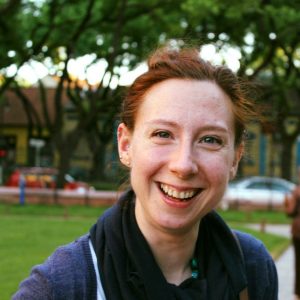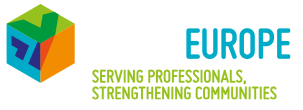By Dr. Dragana Stojanović
As community professionals, we often find ourselves occupied with daily tasks: there is always a program or a seminar to be prepared, or a community need that asks for our attention. Time flies fast, and our contemporary way of living with its imperative of swift communication demands constant activity. Following such a rhythm can be quite challenging and having a lot of information can sometimes leave us feeling in a state of informational noise. So how can we learn, develop, and become even better in such a busy environment of constant change?
 Looking at the two words that describe our job of community professionals, it is important to equally stress both, especially community. The importance of being a professional is immense, but first and foremost, we are surrounded by our communities, and are part of them. As the community grows, we grow with it. As we grow, personally and professionally, the community grows with us. In Jewish thought growth is often associated with learning, and learning is always a process generated not through solitary action, but in a relational way. As Rabbi Samson Raphael Hirsch said: “Isolation is incompatible with Jewish knowledge” (Chapters of the Fathers, p.105), and true growth can flourish only when we support and mentor each other in the process of learning. It is also said: “Two are better off than one, in that they derive greater benefit from their efforts. For if they should fall, the one will raise up the other, as opposed to if one falls when there is no one to raise him” (Kohelet 4:9-10).
Looking at the two words that describe our job of community professionals, it is important to equally stress both, especially community. The importance of being a professional is immense, but first and foremost, we are surrounded by our communities, and are part of them. As the community grows, we grow with it. As we grow, personally and professionally, the community grows with us. In Jewish thought growth is often associated with learning, and learning is always a process generated not through solitary action, but in a relational way. As Rabbi Samson Raphael Hirsch said: “Isolation is incompatible with Jewish knowledge” (Chapters of the Fathers, p.105), and true growth can flourish only when we support and mentor each other in the process of learning. It is also said: “Two are better off than one, in that they derive greater benefit from their efforts. For if they should fall, the one will raise up the other, as opposed to if one falls when there is no one to raise him” (Kohelet 4:9-10).
In our communities we are not only professionals; we are colleagues, friends, and often family to each other. But we can also take on the roles of teachers, mentors, coaches and especially students, learning from everywhere and everyone – just as Ben Zoma said: “Who is wise? He who learns from every person” (Pirke Avot 4:1). Also, in Ta’anit 7a we read: “Much have I learned from my teachers, more from my colleagues, but most of all from my students.”
Why is this important? Working as community professionals can be tough; sometimes we might fear that we don’t have enough knowledge, enough confidence, or that we might not be best prepared for a diversity that we can find in our communities. That is why we should actively take on a mentoring role to each other, both giving and receiving knowledge, skills and support. And this is not only professional colleague to professional colleague but between professionals and community and vice versa. Or, using words from Pesachim 108a as an inspiration, it is our obligation to recline [during Pesach seder], and if there is not enough space – or, in our case, enough knowledge, skills, strength, or courage – we should recline on each other, sharpen each other’s mind (Ta’anit 7a), and turn our sparks into the bliss of growth.
